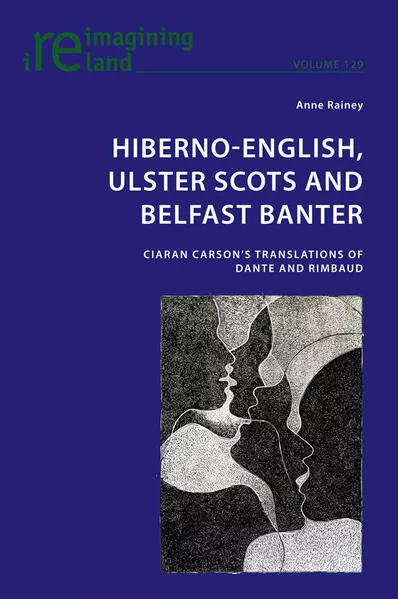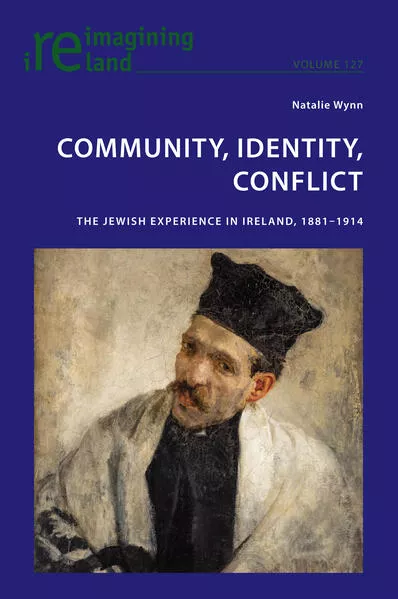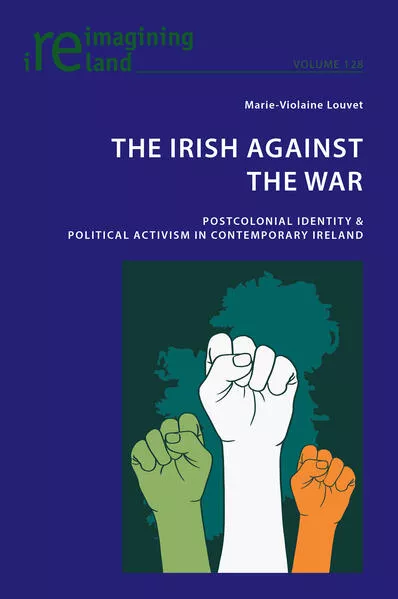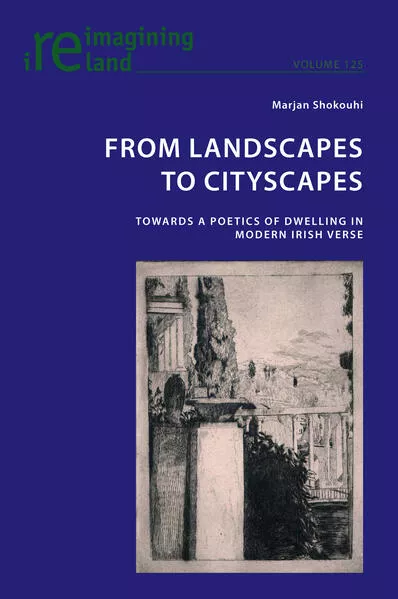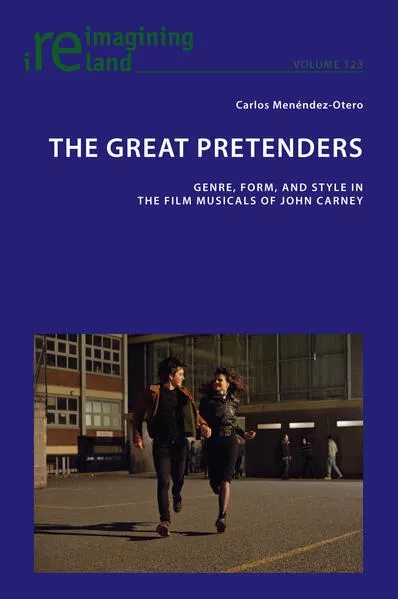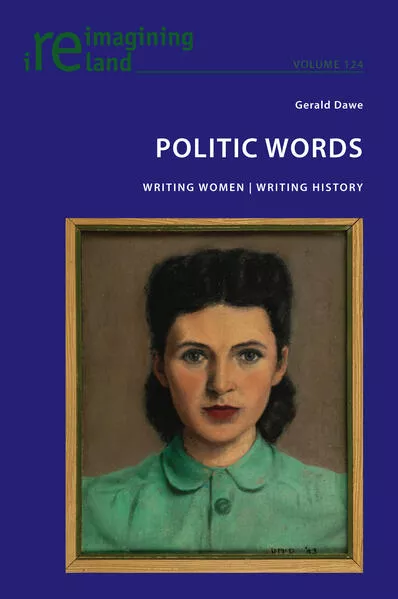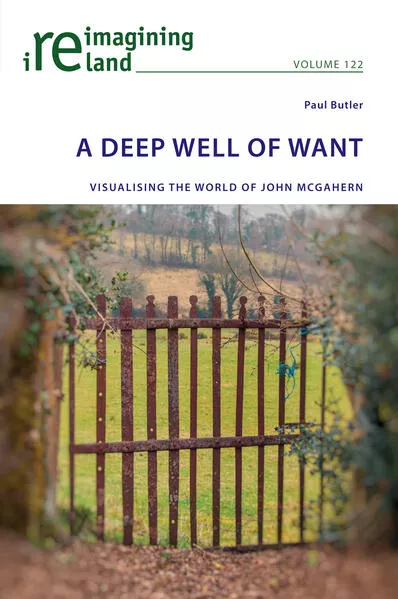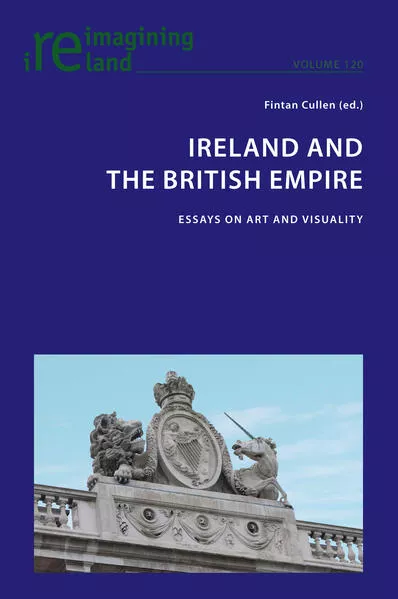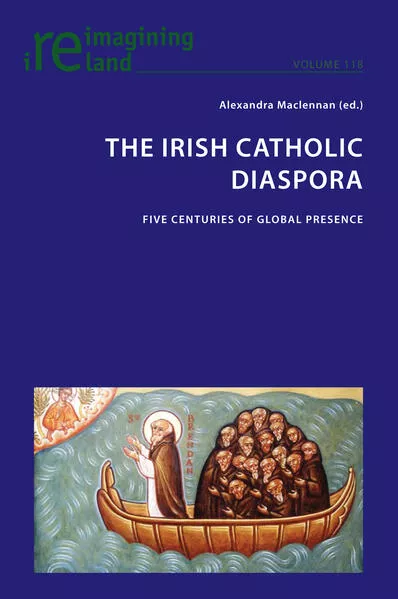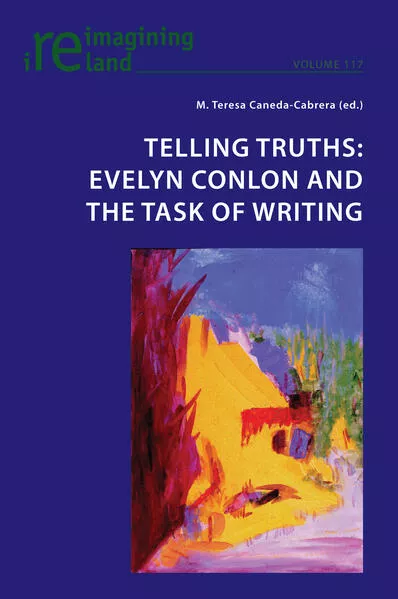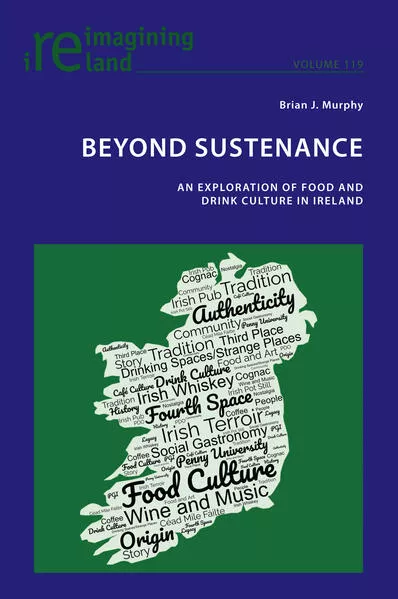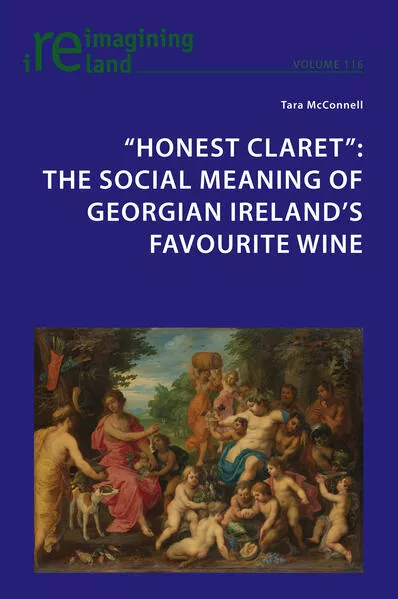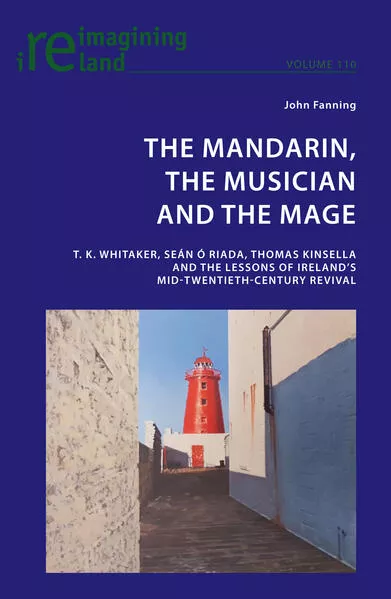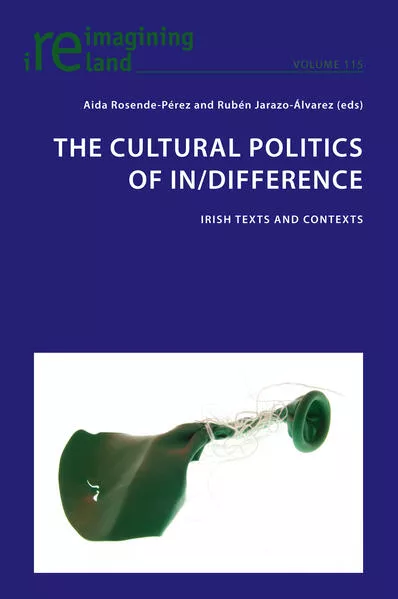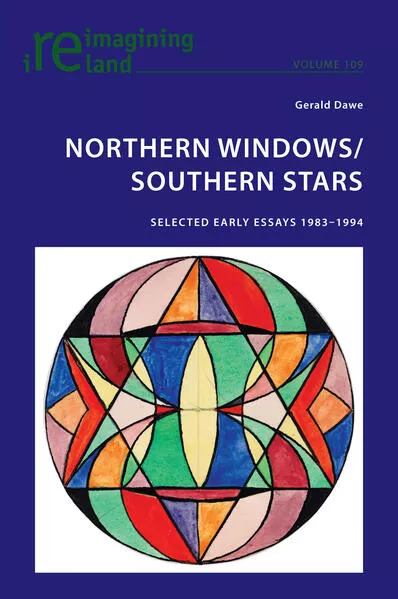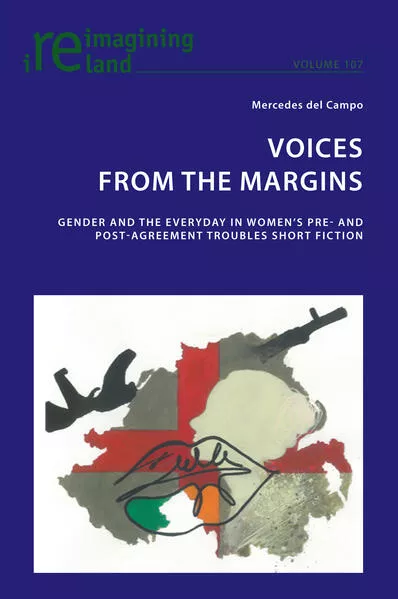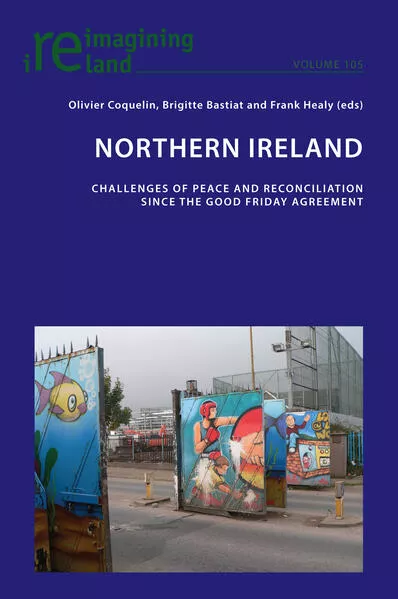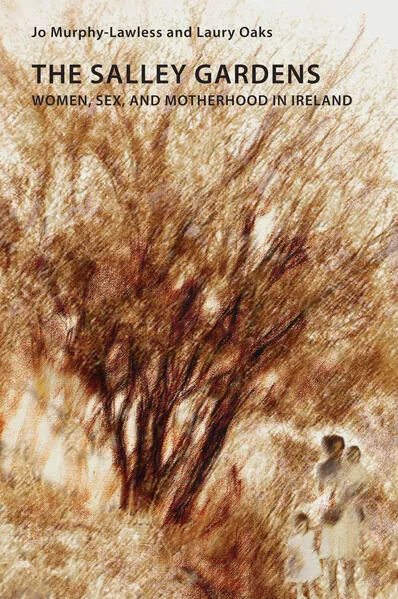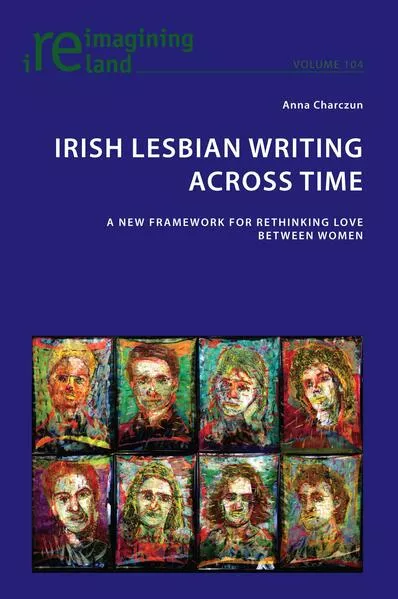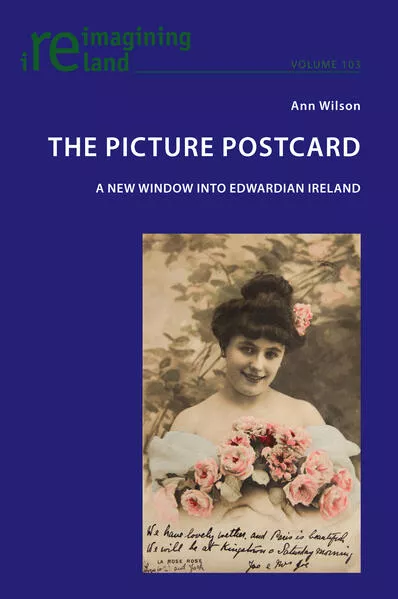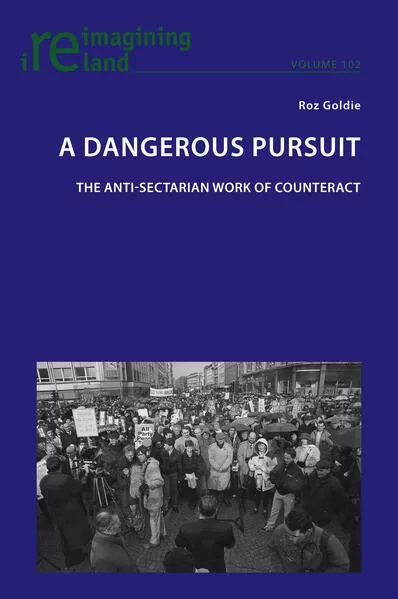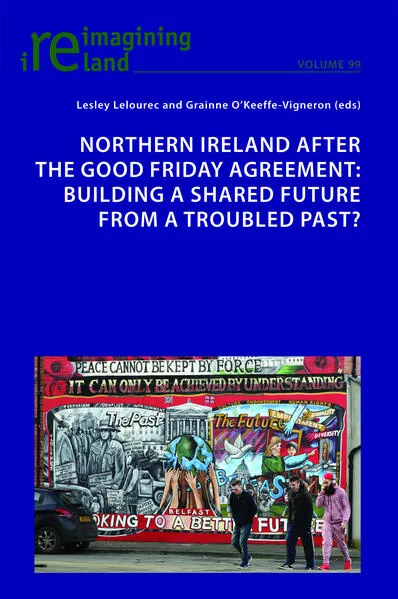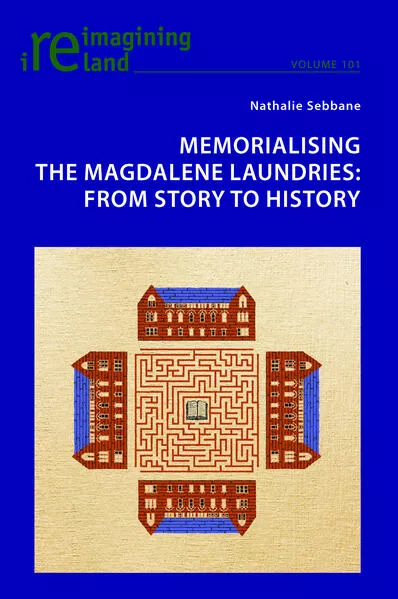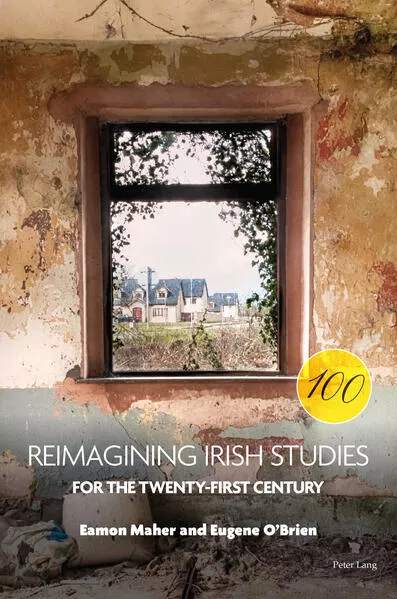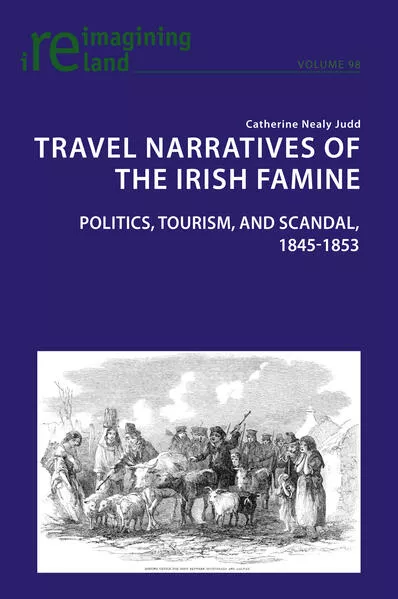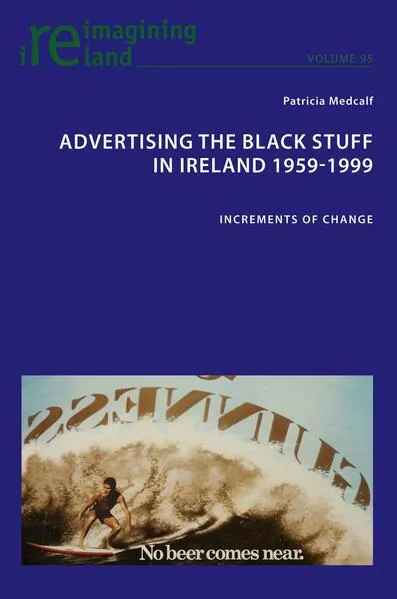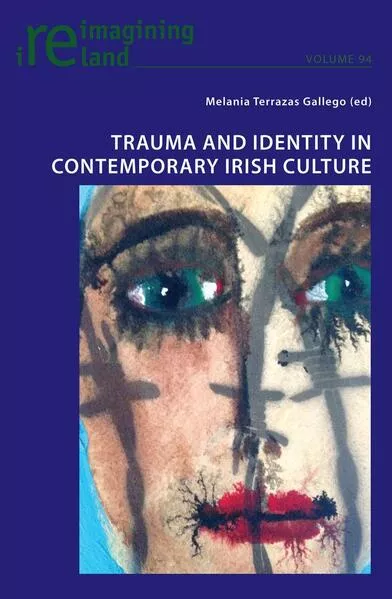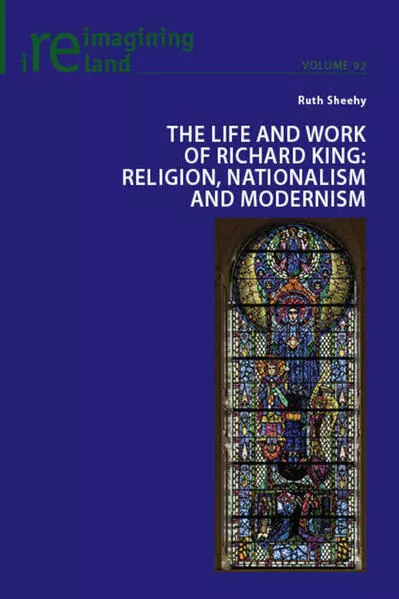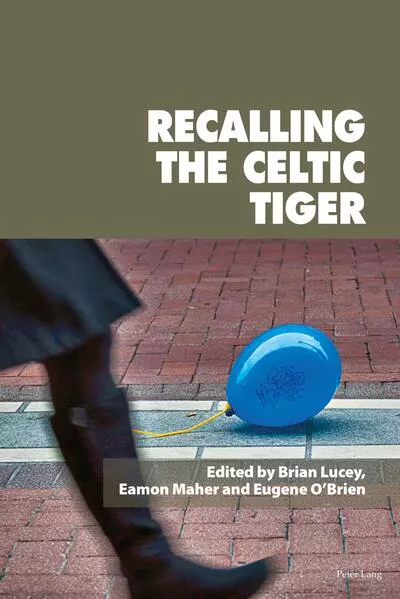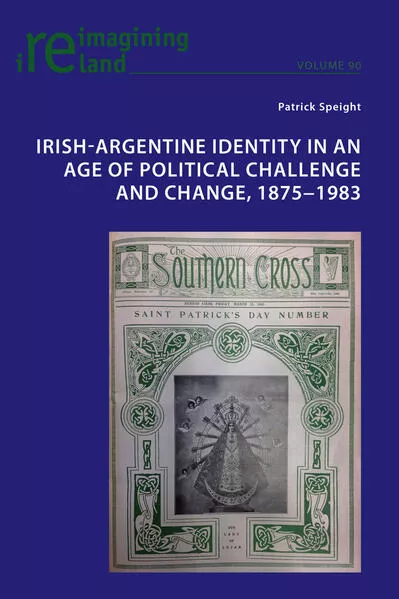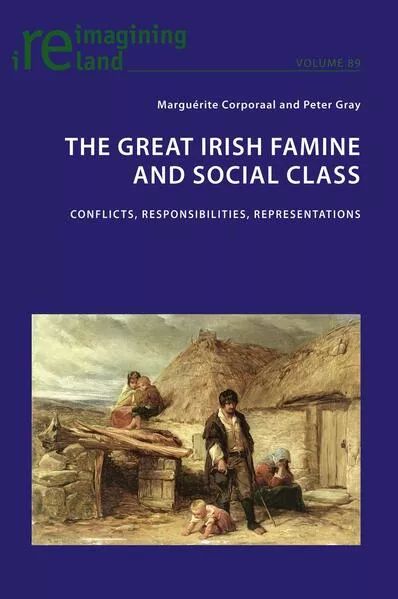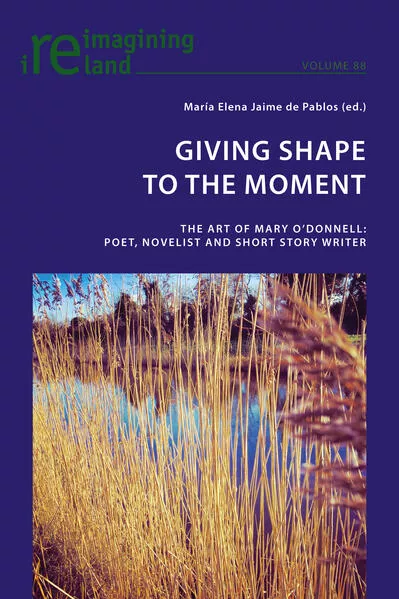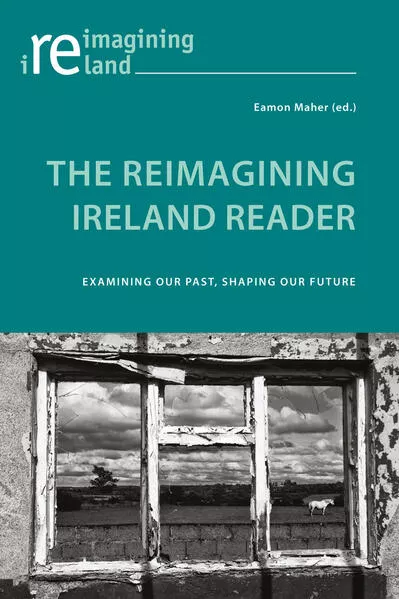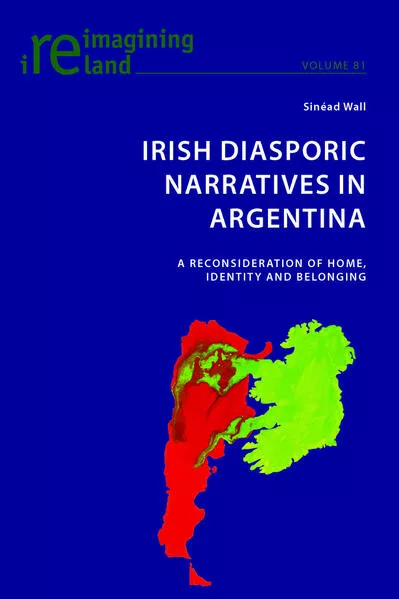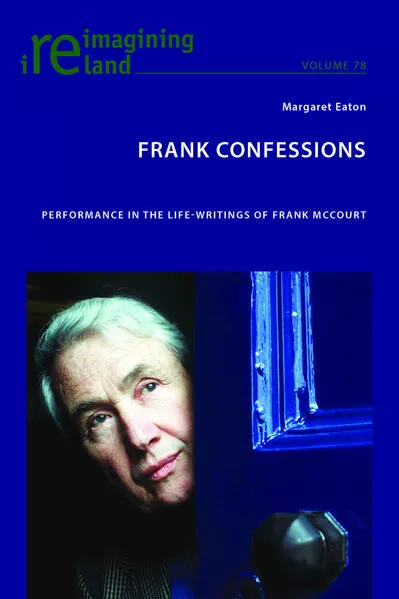
- Publikationen ca: 35
- Buchbewertungen ca: 14
- Fragen & Antworten
Eamon Maher
Natalie Wynn is a Research Associate of the Herzog Centre for Jewish and Near Eastern Religions and Culture, Trinity College Dublin. She has contributed to books and journals on various aspects of Irish Jewish history, historiography, identity and experience, and is co-editor of the essay collections Reimagining the Jews of Ireland: Historiography, Identity and Representation, with Zuleika Rodgers (2023); The Limerick Boycott in Context, with Seán William Gannon (forthcoming, 2024); and Migration in Jewish Imagination and Experience, with Mara W. Cohen Ioannides (forthcoming, 2024).
Hiberno-English, Ulster Scots and Belfast Banter
«This reader-friendly study of some of Ciaran Carson’s major translations provides fascinating illuminations of his techniques as a translator and author. Anne Rainey’s close readings, buoyed by selected theory, show how Carson’s aesthetics and imagination were fuelled by linguistic and cultural pluralism.
Community, Identity, Conflict
«Natalie Wynn has written a definitive account of Irish Jewish history in the period of mass migration at the turn of the twentieth century. She unravels the myths—such as accidental arrival from eastern Europe, or untroubled social mobility as a model minority—which have hitherto characterized Irish Jews.
The Irish Against the War
The purpose of the book is to explore and explicate the origins, evolution and mobilisation of anti-war activism in Ireland from the 1950s. The author applies postcolonial critical perspectives alongside social movement theory to define the multifaceted Irish approach to different international conflicts from the creation of the Irish Campaign for Nuclear Disarmament (1958) to the current war in Ukraine.
From Landscapes to Cityscapes
«Marjan Shokouhi’s new book attests to the ways in which Irish ecocritical scholarship has developed into more than a simple ‘subfield’ of Irish Studies. Shokouhi takes readers on a fascinating journey through the work of three iconic Irish poets in the modern period – Yeats, Kavanagh and MacNeice – from the burgeoning perspective of Irish ecological criticism, exhibiting the complexities of the Irish Literary Revival in addressing questions of place and identity and opening new avenues of research in relation to new voices and marginal identities.
The Great Pretenders
This book focuses on the most successful feature films of John Carney, namely Once (2006), Begin Again (2013) and Sing Street (2016). Drawing on narrative, formalist and genre theories of film, the book presents an in-depth examination of how the formal and stylistic choices made by Carney allow each film to narrate a story in a coherent way.
Politic Words
«Politic Words is an invigorating mix of the personal, the political and the poetic. Gerry Dawe flings his net wide. From Eavan Boland’s ‘secret history’ of women to war memoirist Christabel Bielenberg’s luminous prose; from the vaulting ambition of Éilís Dillon’s historical fiction to hunger striker’s Bobby Sands’ favourite poet, the now unsung Ethna Carbery, he takes us on a bracing journey from the Troubles to Brexit.
A Deep Well of Want
«Paul Butler’s monograph is a wonderful illustration of how a visual reading of McGahern can reveal previously undiscovered aspects of the writer’s aesthetic approach. ‘The Deep Well of Want’ of the title is an expression that captures the pain and hurt at the core of the life journey of both writer and photographer.
Ireland and the British Empire
«This dazzling collection of essays draws out the complexity of Ireland’s connections with British imperialism. The volume takes an admirably wide-ranging and generous approach to Irish visual culture, showing how features such as Irish fashion, architecture, and museum display have been affected by empire.
The Irish Catholic Diaspora
«The Irish missionary momentum in the 19th century attests to the vitality of a Christian community whose richness and great diversity this book illustrates, with particular emphasis placed on the considerable effort made in the field of education, a privileged way for human promotion and the proclamation of the Gospel.
Telling Truths
Evelyn Conlon is one of Ireland’s most important writers. She has published four collections of short stories, My Head is Opening (1987), Taking Scarlet as a Real Colour (1993), Telling: New and Selected Short Stories (2000) and Moving about the Place (2021) and four novels, Stars in the Daytime (1989), A Glassful of Letters (1998) Skin of Dreams (2003) and Not the Same Sky (2013).
Beyond Sustenance
«An important contribution to understanding our culinary journey in Ireland from a time when food was regarded merely as sustenance. As a nation, we have grown in confidence. Up to relatively recently in Ireland, we had a serious inferiority complex and not just about our food and food culture.
"Honest Claret"
In the eighteenth century, Ireland’s elite could choose from a wide range of wines, but their favourite was claret – the red wine of Bordeaux. Whereas Britain’s wine drinkers turned to port in this period, and America’s elite filled their glasses with Madeira, in Ireland, claret flowed in the social world of the privileged classes.
The Mandarin, the Musician and the Mage
In spite of recession, austerity and pandemics, Ireland has demonstrated an extraordinary degree of resilience, becoming one of the most successful economies in Europe and developing into a society remarkably at ease with itself. This book argues that the seeds of this achievement were sown between the mid-1950s and 1960s, when a Second Irish Revival took place which was comparable to the earlier Celtic Revival of the late nineteenth and early twentieth century.
The Cultural Politics of In/Difference
From the perspective of Irish Studies, this book seeks to interrogate the discourses and processes that produce and reproduce «Ireland’s cultural politics of in/difference», and its effects both in the material experience of Othered subjects and in their representation in cultural and literary forms.
Northern Windows/Southern Stars
Northern Windows/Southern Stars is a valuable, accessible and thought-provoking gathering of essays by the distinguished Irish poet and Professor Emeritus, Gerald Dawe. Re-tracing the issues and questions of poetry and politics in the Ireland of the 1980s and 1990s, the collection provides energetic and unexpected views of one poet’s critical readings, including the work of several overlooked poets of the time.
Voices from the Margins
Voices from the Margins explores the particular emphasis that women writers of Troubles short fiction have placed on gender and the everyday, two areas which have often been relegated to the margins of the «official story» about the Northern Irish conflict and peace process.
Northern Ireland
More than twenty years after the peace agreement signed in Belfast on 10 April 1998, an assessment is overdue, particularly given the current political context in Northern Ireland. A serious political crisis led to the suspension of the regional institutions from January 2017 to January 2020, and the Brexit negotiations did not facilitate the search for a solution, especially as the confidence-and-supply agreement between the British Conservative Party and the DUP prevented London from acting as an honest broker between Sinn Féin and the DUP.
The Salley Gardens
By the early 2000s, women in Ireland were arguably freer than any past generation to shape their sexual lives amidst the social freedoms of a globalised society. The Salley Gardens presents reflections from seventy-three heterosexual young women on growing up, forming sexual relationships and some becoming mothers in the last years of the «Celtic Tiger».
Irish Lesbian Writing Across Time
Following the recent advancements in Irish lesbian politics, North and South, lesbian writing is attracting more attention from scholarly audiences, making this body of work particularly timely. Irish Lesbian Writing Across Time is an attestation of a historical presence of lesbians in Irish literature, as it analyses the progression of Irish lesbian narrative over the past two centuries, while verifying key characteristics of time periods that correspond with the model of development.
The Picture Postcard
The Picture Postcard, a new window into Edwardian Ireland uses the material culture of the picture postcard as a lens through which to examine life on the island of Ireland during the Edwardian period (1902-10). Picture postcards became extremely popular worldwide at the start of the twentieth century, when literally hundreds of billions of them were produced and sold.
A Dangerous Pursuit
This is the untold story of Counteract, the trade union sponsored anti-sectarian unit tackling violent sectarianism in the workplace in the Northern Ireland conflict. As the death toll mounted through the 1980s key union women and men started what was planned as a campaign to support workers and became a ground-breaking facility for mediating sectarian disputes in the workplace in these violent times.
Northern Ireland after the Good Friday Agreement
The current «decade of centenaries» and commemorations on both sides of the Irish Sea is providing an opportunity both to reflect upon significant events and challenges that the island of Ireland has been confronted with in the past, and also to contemplate and focus on the future.
Memorialising the Magdalene Laundries
Since the publication of James Smith’s groundbreaking book on the Magdalene laundries in 2007, many developments have made the issue even more topical. Even though the lack of access to archives and records of religious orders remains a major obstacle to writing a comprehensive history of the Magdalene laundries, the accessibility of witness testimony and the publication of the McAleese report in 2013 have opened up new avenues of research and methodology.
Reimagining Irish Studies for the Twenty-First Century
This landmark collection marks the publication of the 100th book in the Reimagining Ireland series. It attempts to provide a «forward look» (as opposed to what Frank O’Connor once referred to as the « backward look») at what Irish Studies might look like in the third millennium.
Travel Narratives of the Irish Famine
Ireland’s Great Famine generated Western Europe’s most devastating social crisis of the nineteenth century, a crisis that created enormous and transformational upheaval. In Travel Narratives of the Irish Famine: Politics, Tourism, and Scandal, 1845-1853, author Catherine Nealy Judd proposes that a new literary genre emerged from the crucible of the Great Famine, that is, the Irish Famine travelogue.
Advertising the Black Stuff in Ireland 1959-1999
1959 to 1999 was a pivotal time in the Republic of Ireland’s short history. This book’s journey commences in 1959 when the country had just taken its first steps on the road to internationalization. It concludes 40 years later in 1999, by which time Ireland had metamorphosed into one of the most globalized countries in the world.
Trauma and Identity in Contemporary Irish Culture
The last two centuries of Irish history have seen great traumas that continue to affect Irish society. Through constructing cultural trauma, Irish society can recognize human pain and its source/s and become receptive to the idea of taking significant and responsible measures to remedy it.
The Life and Work of Richard King
This book on the Irish liturgical artist Richard King (1907-74), examines his career in the context of religion, nationalism and modernism. The book focuses on the interdisciplinary relationship between religion and art during pre- and post-Vatican II Ireland.
Recalling the Celtic Tiger
This book looks at various effects, symptoms and consequences of the period in Irish culture known as the Celtic Tiger. It will trace the critical pathway from boom to bust – and up to the current beginnings of a similar, smaller boom – through events, personalities and products.
Irish-Argentine Identity in an Age of Political Challenge and Change, 1875−1983
The Irish immigrants who arrived in Argentina between 1840 and 1890 were welcomed. Argentina was different from the English-speaking destinations familiar to other Irish emigrees: the historical antagonism between Catholicism and Protestantism was absent, and Irish immigrants were spared the discrimination experienced by those who settled in America.
The Great Irish Famine and Social Class
The sesquicentenary of the Great Irish Famine saw the emergence of seminal, often revisionist, scholarship addressing the impact of the catastrophe on Ireland’s economy (including its relations with Britain) and investigating topics such as the suffering of the rural classes, landlord and tenant relations, Poor Laws and relief operations.
Giving Shape to the Moment
This is the first book to provide a critical assessment of the work of the Irish author Mary O’Donnell. The essays collected here engage with O’Donnell’s writing across multiple genres and explore the themes and preoccupations that have characterized her oeuvre.
The Reimagining Ireland Reader
To mark the fact that the Reimagining Ireland series will soon have one hundred volumes in print, this book brings together a selection of essays from the first fifty volumes, carefully chosen to give a flavour of the diversity and multidisciplinary nature of the series.
Irish Diasporic Narratives in Argentina
Departure from Ireland has long occupied a contradictory position in Irish national discourse, alternately viewed as exile or betrayal. This book analyses how departure, as well as notions of home, identity and return, is articulated in the narratives of three members of the Irish diaspora community in Argentina: John Brabazon’s journal The Customs and Habits of the Country of Buenos Ayres from the year 1845 by John Brabazon and His Own Adventures; William Bulfin’s series of sketches for The Southern Cross newspaper, later published as Tales of the Pampas (1900) and Rambles in Eirinn (1907); and Kathleen Nevin’s fictional memoir, You’ll Never Go Back (1946).
Frank Confessions
This book aims to redress the critical neglect of Frank McCourt’s life-writing, which has been dismissed all too frequently as «misery memoir» and deemed commercially driven or aesthetically and politically naïve. It reassesses the life cycle of McCourt’s work, investigating the experiences that shaped his desire to write and demonstrating a nuanced and multifaceted network of stimuli and references.
